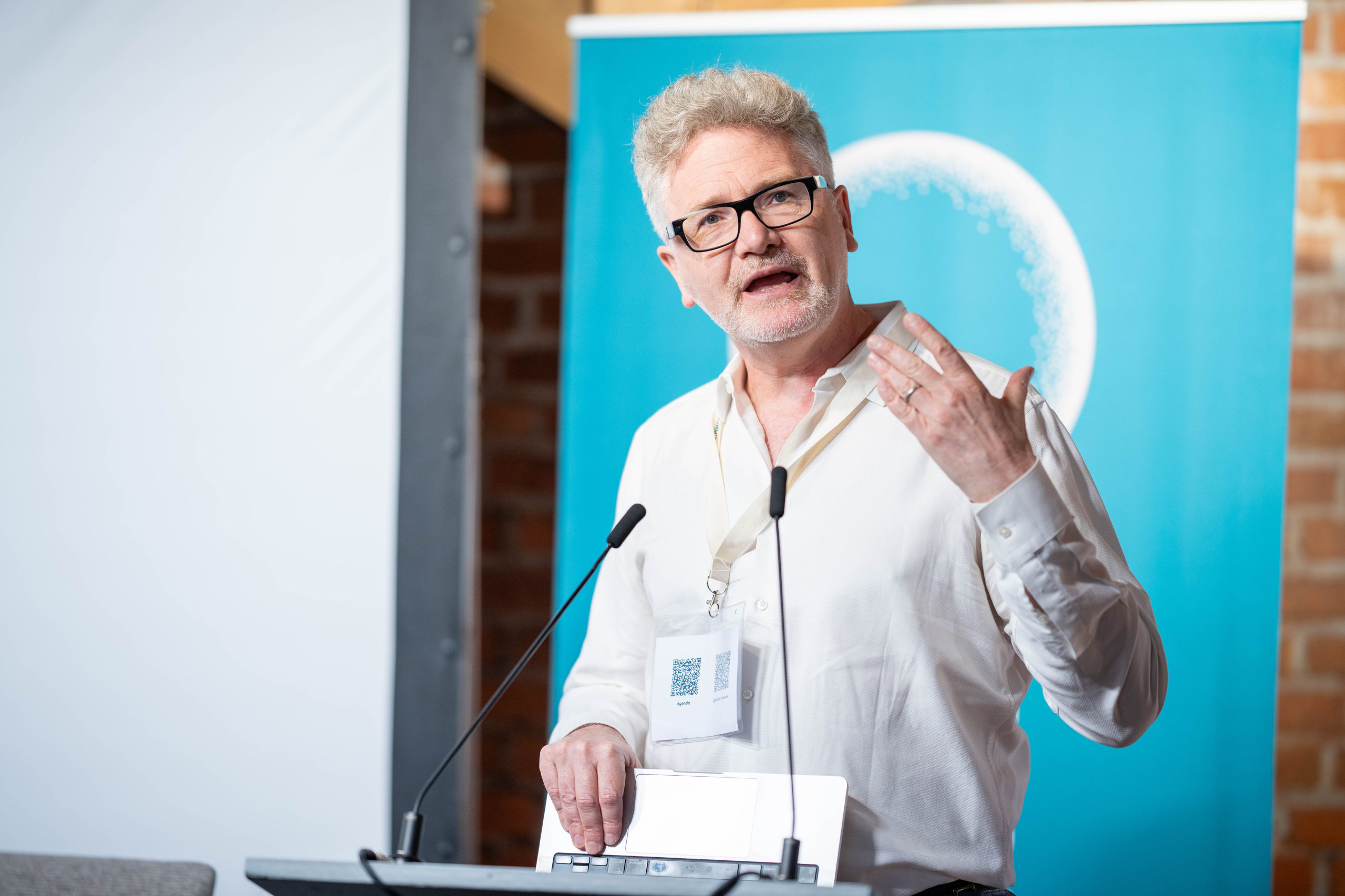NEW PARADIGM
The Berlin Summit 2025: Keynote by Adam Tooze: "World ordering instead of world orders"
In his keynote on Friday at the Berlin Summit, Adam Tooze challenged the widespread longing for a new world order—arguing instead for a more dynamic understanding of global governance: not as a fixed system, but as an ongoing process of world ordering.
BY
GERRIT TER HORSTPUBLISHED
17. JUNE 2025
In his keynote at the Berlin Summit 2025, Adam Tooze addresses the deeply felt but perhaps misguided longing for a “new world order.” Responding to the summit’s central question—“Who will now work it out?”—he urges a critical examination of how we think about global systems and the narratives we tell ourselves about their creation.
Tooze begins by reflecting on the powerful symbolic pull of Bretton Woods, often mythologized as the last great moment of purposeful global economic design. He dismantles this narrative by recounting the messy and prolonged history of Bretton Woods—from its delayed implementation and reliance on U.S. dominance to the internal contradictions that led to its collapse in the early 1970s. Rather than a harmonious foundational moment, Tooze sees Bretton Woods as a series of political compromises and historical contingencies.
Drawing on psychology, history, political economy, and even Nietzsche, Tooze asks: Why do we cling to the idea of orderly beginnings? Is it a yearning for agency, fairness, predictability—or a form of escapism? He suggests that our continued fixation with “moments of order” like Bretton Woods functions more like a comforting fairy tale than a practical roadmap.
Yet this desire is real, he notes—and particularly strong in Europe, where the idea of a rules-based international order remains central. Here, Tooze notes: Germany, he argues, has often been a free rider within U.S.-led systems—from Bretton Woods to NATO—and remains hesitant to take leadership in shaping a new order. If anyone is planning the next global system, he provocatively suggests, they may not want Germany at the table.
One of Tooze’s contribution in this keynote is a re-framing. Rather than seeking a new world order, we should be thinking in terms of world ordering—a continuous, distributed, and adaptive process. This involves making deals rather than writing constitutions, recognizing multiple centers of agency, and moving from norm-based stability to fact-based pragmatism.
He highlights China as the key actor already engaging in this kind of world-making. While Beijing is not constructing an American-style global order, it is deliberately shaping new realities through trade networks, foreign investment, infrastructure, and technological influence. This “policy of connection,” as Tooze calls it, is not cohesive but is nonetheless real—and it reflects a worldview driven by the challenges of large national development, a concept far removed from Europe’s post-national, sustainability-focused agenda.
In closing, Tooze warns that although we may see what needs to be done—shifting from passive nostalgia to active engagement—the political will in Europe may be too slow to materialize. The train may already have left the station. China is not just imagining a future; it is building one. Whether the West is prepared to respond, not with fairy tales but with strategic clarity, remains the open—and urgent—question.
